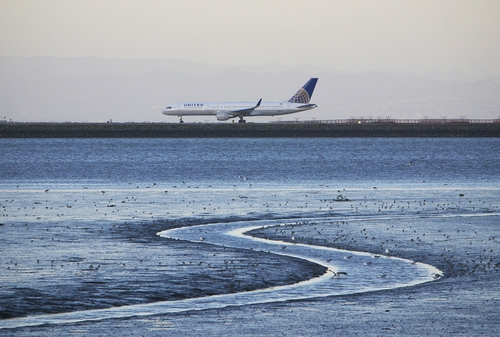
Over the past twenty years, as one U.S. airline merged with another, reducing the number of major carriers to exactly four (United, American, Delta, and Southwest), we were always told not to worry. In press releases issued by the new behemoths of the air, we were reassured that all was for the best; that the new giants would compete harder than ever before, thrilling us with their bargains and discounts.
What a crock! Competition is today virtually non-existent among the major “legacy” lines (the big four), and far from being discounted, air fares are zooming upwards in price. To the extent that bargains are now available, they are from an unimportant handful of small lines (Allegiant, Frontier, Spirit) accounting for only a tiny fraction of all air traffic.
And thus, as we enter the high season of 2015, airfares (including so-called “ancillary charges” for baggage and assigned seats) are at an historic high, as are airline profits. In the first quarter of 2015, Delta Airlines had unprecedented net earnings, and the same is expected of its so-called competitors. Not only are airlines rolling in dough (they haven’t passed on a penny of their recently-lowered costs for fuel), but they are also deliberately reducing their service from many U.S. cities (ask any resident of Houston or the Twin Cities).
To the extent that domestic flights are increasingly expensive, they don’t hold a candle to the cost of trans-Atlantic transportation. In a survey of the trans-Atlantic situation for summer of 2015, the leading publication of the travel industry, Travel Weekly (in an article by Kate Rice), stated that most persons flying the Atlantic in the weeks ahead will pay an astonishing $2,300 round-trip from Los Angeles to Paris, $2,000 round-trip from San Francisco to Rome, $1,700 round-trip from Denver to Athens. Multiplied by two for a couple traveling together, these rates will make a European trip unaffordable for a great many Americans.
A remarkable reduction in the number of carriers flying the Atlantic, similar to the U.S. domestic situation, has virtually eliminated competition on those international routes.
Affordable air transportation is a vital element in numerous other economic activities, and barriers to affordable air transportation can have a devastating negative impact on our overall business health, including tourism (essential for the economies of so many destinations). A small number of air carriers are clearly beginning to enjoy monopolistic power. They are thus on the brink of becoming public utilities whose business decisions can affect whole communities and even whole nations.
Shouldn’t we begin to discuss whether they should be subject to a certain amount of public oversight?
Photo credit:





